Veterinary Medicine Continuing Education Morton s Steakhouse Boca Raton Florida
As a member of Vetcetera, you'll get access to our RACE-approved continuing education video courses. Each course category consists of stand-alone RACE-approved video courses. Complete the courses when and where it is convenient for you and discover topics taught by veterinary experts.

Presenters: Heidi Reuss-Lamky, LVT, VTS (Anesthesia & Analgesia), (Surgery) / April Bays CVT, VTS (ECC), VCC
Total Credit Hours: 5 (5 Courses)
Each of these courses has been approved for continuing education credit in jurisdictions that recognize RACE approval. Additionally, Vetcetera is approved as a sponsor of continuing education for veterinarians and veterinary technicians in the state of New York.
Anesthesia/Analgesia
Learn how to administer and monitor anesthesia to veterinary patients. Review pain management techniques, including local anesthesia protocols.
Anesthesia/Analgesia Courses
Anesthesia Mistakes Awareness
Heidi Reuss-Lamky reviews common anesthesia mistakes that can affect veterinary patients. She discusses various areas of concern and provides instruction on utilizing surgical checklists to avoid errors.
Understanding Capnography–It's Breathtaking!
Heidi Reuss-Lamky reviews capnography and how it's utilized in anesthesia. She discusses equipment, carbon dioxide physiology, and capnogram interpretation.
Dental Nerve Blocks for Technicians
Heidi Reuss – Lamky reviews anesthesia block techniques for dental and mouth procedures
The Pain Stops Here: Locoregional Anesthetic Techniques
Heidi Reuss-Lamky reviews locoregional anesthetic techniques
Anesthesia in the Critical Patient
April Bays covers all the basics to advanced monitoring techniques and their applications including pulse oximetry, capnography, blood pressure monitoring (invasive and non), electrocardiogram, and oxygenation/ventilation options which are skills that will carry technicians through critical care monitoring and prepare them to utilize our commonly used analgesics and anesthetics as safely as possible.

Presenters: Sagi Denenberg DVM, MRCVS / Valli Parthasarathy, DVM, DACVB / Amy L. Pike, DVM, DACVB / Kerry Rolph, BVM&S, CertVC, PhD, FANZCVS (Feline Chapter), DipECVIM-Ca, FRCVS
Total Credit Hours: 9.75 (9 Courses)
Each of these courses has been approved for continuing education credit in jurisdictions that recognize RACE approval. Additionally, Vetcetera is approved as a sponsor of continuing education for veterinarians and veterinary technicians in the state of New York.
Behavior
Learn how to recognize and manage some of the most common behavioral problems encountered in private practice: separation anxiety, human-directed aggression, feline house soiling, and puppy and kitten behavioral concerns. You'll get tips for behavioral modification, medication options, and client communication, as well as information on when to refer patients to a specialist.
Behavior Courses
Cognitive Dysfunction Syndrome in Cats
Review the diagnosis and management of feline cognitive dysfunction syndrome.
Feline Housesoiling
Provides the behavioral causes of feline house soiling including treatment options and medical rule-outs.
Human-directed Aggression in Dogs
Explore the diagnosis and management of human-directed aggression in dogs and provides client communication tips for these challenging cases.
Managing Anxiety and Fear in the Veterinary Practice
Review recognizing and managing anxiety and fear in dogs and cats in a clinic setting to benefit the veterinary team, patients, and clients.
Puppy and Kitten Behavioral Development and Problem Behavior Prevention
Review puppy and kitten behavioral stages and body language. Review the most common behavioral problems in puppies and kittens and useful strategies for preventing them including tips for healthy socialization and choosing a trainer.
Plus 4 other Behavior courses!
- Separation Anxiety
- Separation Anxiety in Dogs and Cats in a Post-Covid World
- Feline Inappropriate Urination: Forget the Box and Focus on the Felines
- Medical Causes and Medication Intervention for Aggression in Dogs
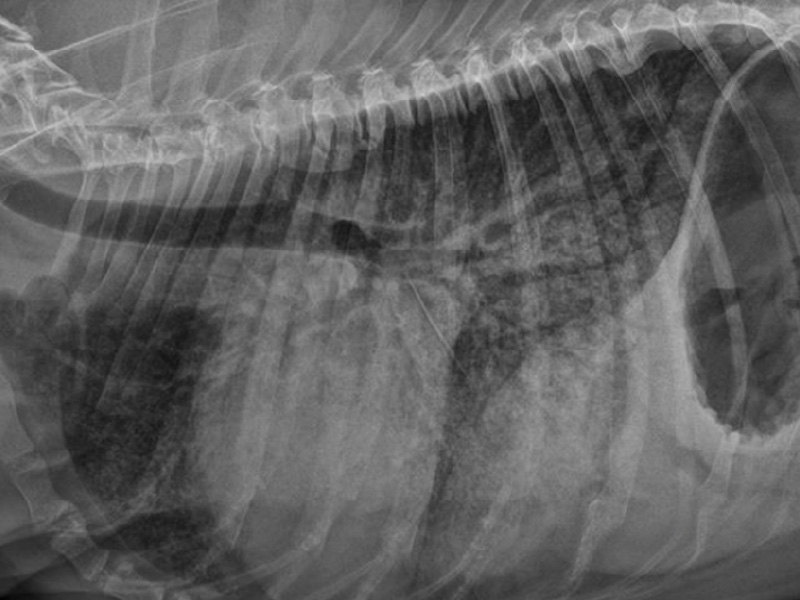
Presenters: Sarah M. Cavanaugh, DVM, MSc, DACVIM /
Kerry Rolph, BVM&S, CertVC, PhD, FANZCVS, DipECVIM-Ca, FRCVS
Total Credit Hours: 4(4 Courses)
Each of these courses has been approved for continuing education credit in jurisdictions that recognize RACE approval. Additionally, Vetcetera is approved as a sponsor of continuing education for veterinarians and veterinary technicians in the state of New York.
Cardiology
Diagnosis to management and everything in between related to cardiac disease in small animal general practice. You'll review common differential diagnoses and recommended diagnostic steps for heart murmurs, gallops, and dysrhythmias. Learn about how to stabilize cardiac patients in emergency situations, when to refer them for specialty treatment, and how to best communicate with their owners as you manage these cases.
Cardiology Courses
Cardiac Emergencies in Dogs
Review the three common causes of canine cardiac emergencies: congestive heart failure, arrhythmias, and pericardial effusion. We'll review causes, diagnosis, treatment, and follow-up for each, with attention to effective and compassionate client communication throughout.
Heart Murmur Review: Next Steps & Conversations with Pet Parents
Explore heart murmurs in puppies and adult dogs. We'll discuss murmur grades, innocent/non-pathologic murmurs, and a flow chart for the diagnostic work-up; multiple case studies will be reviewed.
Examination of the Dyspneic Cat
Examination of a dyspneic cat can be challenging and can lead to decompensation. Learn how to minimize stress and perform a full evaluation of the cardiorespiratory system, while identifying differentials and working toward a diagnosis in these challenging cases.
Feline Murmurs, Gallops, & Dysrhythmias: When Should I Investigate/Refer?
We'll discuss different forms of auscultable cardiac abnormalities, addresses their significance, and gives some practical guidance on workup. We'll also provide client communication tips and advice on when to refer these cases.

Total Credit Hours: 1 (1 Course)
Each of these courses has been approved for continuing education credit in jurisdictions that recognize RACE approval. Additionally, Vetcetera is approved as a sponsor of continuing education for veterinarians and veterinary technicians in the state of New York.
Clinical Pathology
Learn the basics of clinical pathology, including blood smear analysis. Review different poikilocytes and the conditions associated with them.
Cardiology Courses
Blood Smear Evaluation: The Basics
Review of blood smear evaluation basics. A discussion of techniques to improve efficiency and common red blood cell, white blood cell, and platelet observations.

Presenter: Diane Carle, DVM, DAVDC / Brook Niemiec, DVM, DAVDC, DEVDC, FAVD
Total Credit Hours: 5(5 Courses)
Each of these courses has been approved for continuing education credit in jurisdictions that recognize RACE approval. Additionally, Vetcetera is approved as a sponsor of continuing education for veterinarians and veterinary technicians in the state of New York.
Dentistry
Common dentistry needs in general practice. Review radiographic technique, dental anatomy, and normal and abnormal findings and learn about the diagnosis and treatment of periodontal disease, feline tooth resorption, and feline stomatitis, including recommendations for when to refer cases to a veterinary dentist. Receive helpful tips for successful client communication.
Dentistry Courses
Basic Dental Extractions in Dogs and Cats
Review basic dental extractions in dogs and cats, including equipment, regional anesthesia, and techniques.
Effective Communication in Veterinary Dentistry
Get tips for communicating effectively with owners in the context of veterinary dentistry. We'll address team-based communication, owner education methods, and addressing the fear of anesthesia.
Dental Radiograph Interpretation
Review dental anatomy, correct radiographic technique, and common mistakes and how to correct them. We'll discusses radiographic signs of endodontic disease, periodontal disease, and tooth resorption, with attention to both significant and insignificant findings and present multiple cases.
Periodontal Disease in Dogs and Cats
Receive a brief anatomy refresher and then explore etiology, predisposing factors, and consequences. We'll share a step-by-step diagnostic approach and treatment options available in general practice and referral facilities.
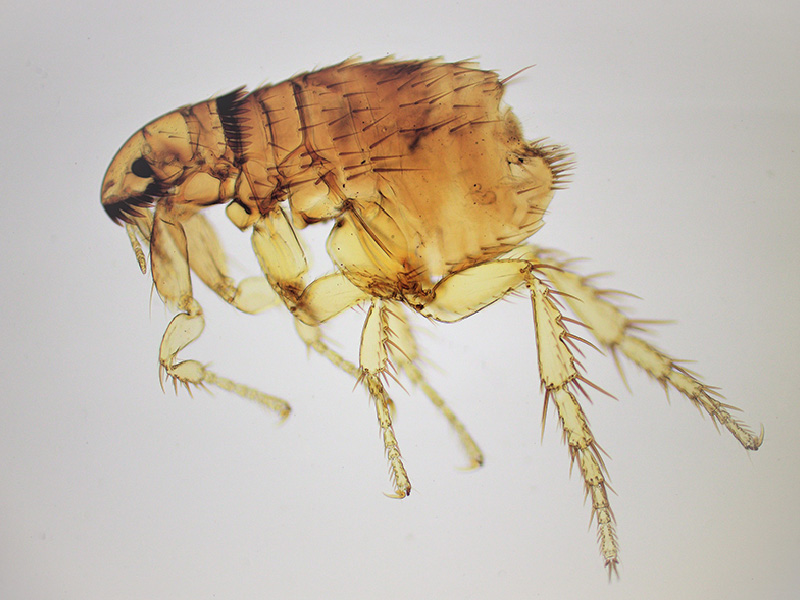
Presenter: Jennifer Bentley, DVM, DACVD / Amelia White, DVM, MS, DACVD
Total Credit Hours: 5 (5 Courses)
Each of these courses has been approved for continuing education credit in jurisdictions that recognize RACE approval. Additionally, Vetcetera is approved as a sponsor of continuing education for veterinarians and veterinary technicians in the state of New York.
Dermatology
Everything you need to know for the diagnostic workup and treatment of an allergic patient in small animal general practice. Review diagnostic techniques, differential diagnoses, and medical therapies, as well as tips on client communication and when to consider referring patients to a specialty practice for more advanced diagnostics and treatment.
Dermatology Courses
The Initial Approach to the Allergic Patient
A step-by-step approach to allergic patients, including tips for client communication and common treatment options.
Dermatology Diagnostics
Review common diagnostic procedures, such as cytology and skin scraping, and appropriate antibiotic options for dermatology patients.
Allergies (Flea, Food, and Contact)
Learn how to diagnosis and treat flea, food, and contact allergies and get tips for successful client communication.
Atopic Dermatitis
Review the diagnosis and treatment of atopic dermatitis and get tips for successful client communication.
Tips for Managing Canine Otitis Externa
Dr. Amelia White focuses on the most common type of otitis, otitis externa relating to the primary causes of otitis externa, and developing a streamlined diagnostic and treatment approach. communication.
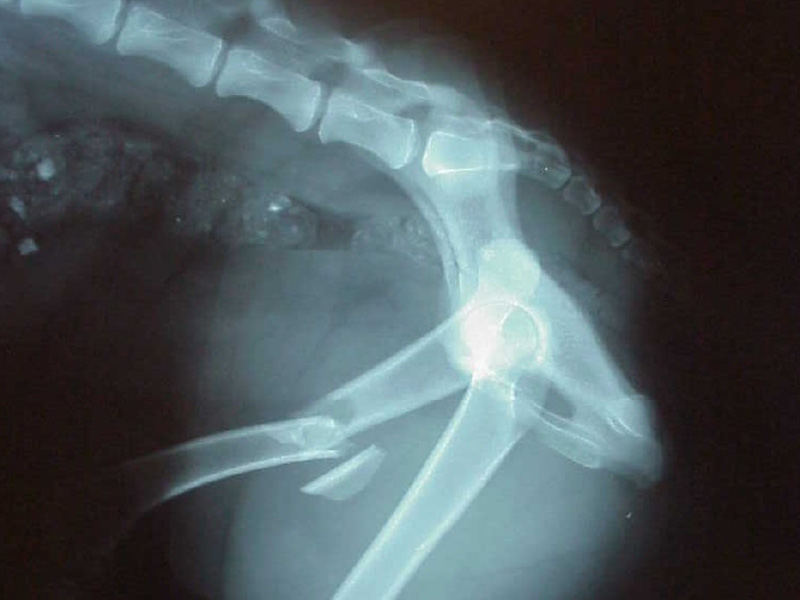
Presenter: Lenore Bacek, DVM, MS, DACVECC / Elisa M. Mazzaferro, MS, DVM, PhD, DACVECC / Amelia S. Munsterman, DVM, MS, PhD, DACVS-LA, DACVECC, CTCVMP, CVMMP / April Bays CVT, VTS (ECC), VCC / Heidi Reuss-Lamky, LVT, VTS (Anesthesia & Analgesia), (Surgery) / Misty Edmondson, DVM, MS, DACT
Total Credit Hours: 9 (9 Courses)
Each of these courses has been approved for continuing education credit in jurisdictions that recognize RACE approval. Additionally, Vetcetera is approved as a sponsor of continuing education for veterinarians and veterinary technicians in the state of New York.
Emergency Critical Care
Learn how to manage common emergency situations encountered in general practice, including trauma cases. Review steps to triage, stabilize, and support patients. Review common emergency techniques such as chest tube placement and thoracocentesis.
Emergency Critical Care Courses
Emergency Management of Blocked Cats — Is There Anything New?
Review the management of cats with urinary obstruction, including clinical signs and physical exam findings, followed by initial stabilization, unblocking, and aftercare.
Triage STAT: Emergency Approach to the Small Animal Trauma Patient (On Demand)
Walk through a diagnostic and therapeutic approach to the small animal trauma patient, including management of respiratory injuries, rib fractures, pneumothorax, and uroabdomen.
Esophageal Obstruction in the Horse
Dr. Amelia Munsterman reviews the diagnosis and management of esophageal obstruction in horses. She discusses esophageal anatomy and pathophysiology of obstruction, and she also provides tips for managing common sequelae and for preventing recurrence.
Diagnosis and Management of Diabetic Ketoacidosis
Dr. Elisa Mazzaferro reviews the pathophysiology of diabetes mellitus and diabetic ketoacidosis. She then discusses the diagnosis and treatment of DKA patients, including identifying and treating underlying causes of insulin resistance and nutritional support.
Addisonian Crisis Management
April Bays CVT, VTS (ECC), VCC reviews the pathophysiology of hypoadrenocorticism. She then discusses common clinical signs, diagnosis, and treatment of these patients, with a focus on patients in acute crisis.
Plus 4 other Emergency Critical Care courses!
- Advanced Catheterization Techniques
- Approach to Emergent Arrhythmias
- Common Emergencies in Small Ruminants
- Your Dog Ate What?! Managing Common Toxicities
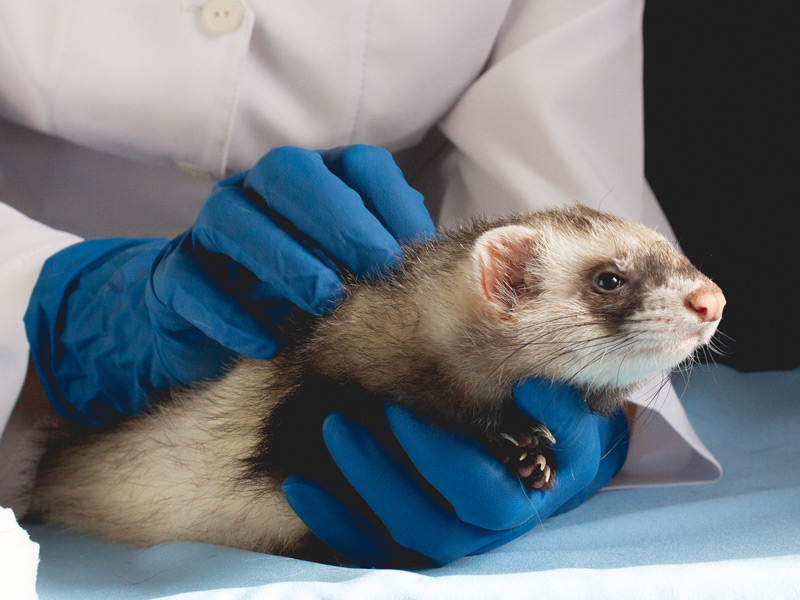
Presenter: Cathy Johnson-Delaney, DVM
Total Credit Hours: 1 (1 Course)
Each of these courses has been approved for continuing education credit in jurisdictions that recognize RACE approval. Additionally, Vetcetera is approved as a sponsor of continuing education for veterinarians and veterinary technicians in the state of New York.
Exotics
Expand your knowledge of exotic animal medicine. Learn how to diagnose and treat the most common conditions in exotic pets, such as ferrets.
Exotics Courses
The Ferret: Essentials for the Practitioner
Dr. Cathy Johnson-Delaney reviews the basics of ferret medicine, including anatomy, behavior, and husbandry. She also discusses ferret handling techniques and their most common disease conditions.
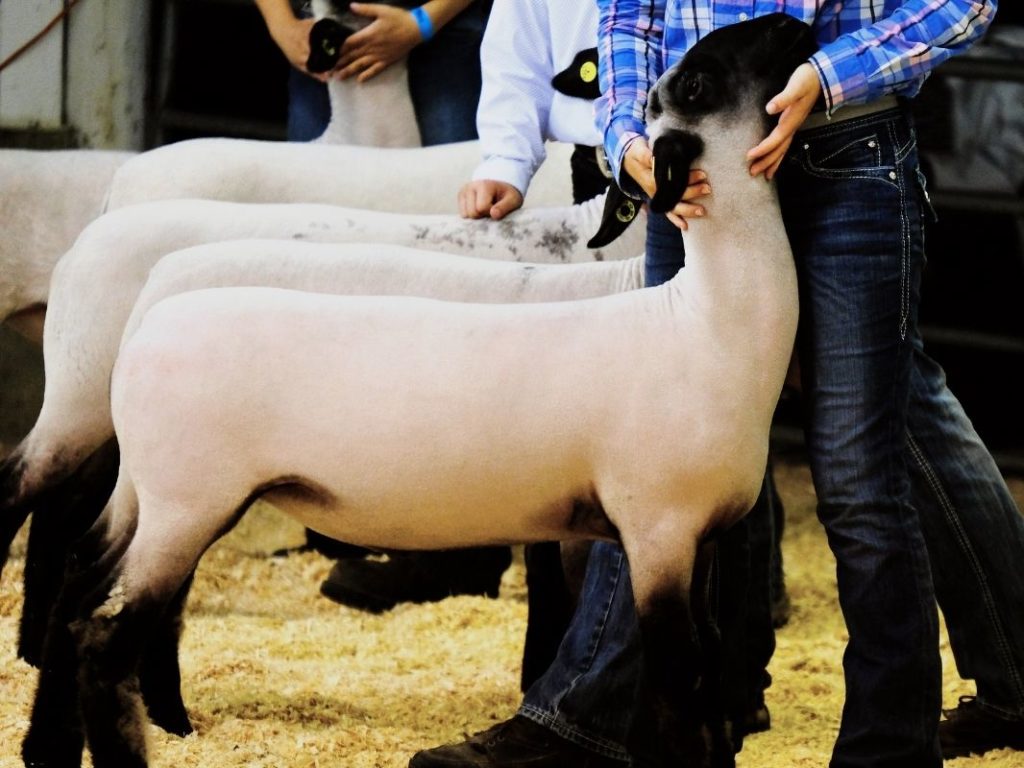
Presenter: Misty Edmondson, DVM, MS, DACT / Pamela Martin, DVM
Total Credit Hours: 3 (3 Courses)
Each of these courses has been approved for continuing education credit in jurisdictions that recognize RACE approval. Additionally, Vetcetera is approved as a sponsor of continuing education for veterinarians and veterinary technicians in the state of New York.
Internal Medicine
Learn to navigate internal medicine cases in clinical practice. Review the diagnosis and treatment of common urinary diseases in small ruminants, including obstructive urolithiasis, ulcerative posthitis, and more.
Internal Medicine Courses
Urinary Disease in Small Ruminants
Dr. Misty Edmondson reviews the most common causes of urinary tract disease in small ruminants. She discusses clinical signs, diagnostics, treatment, and prevention of urolithiasis, and she also briefly covers conditions such as ulcerative posthitis and renal amyloidosis.
Fun With Flags and IMHA
This presentation covers the diagnostic and therapeutic approach to IMHA with brief discussion on anemia and transfusion medicine, as well as practical approaches to case management.
Immune Mediated Thrombocytopenia – What the Deuce?!?
This presentation covers the diagnostic and therapeutic approach to IMT with brief discussion on comorbidities including Vector-borne diseases and IMHA, as well as practical approaches to case management.

Presenter: Jill Narak, DVM, MS, DACVIM (Neurology)
Total Credit Hours: 2 (2 Courses)
Each of these courses has been approved for continuing education credit in jurisdictions that recognize RACE approval. Additionally, Vetcetera is approved as a sponsor of continuing education for veterinarians and veterinary technicians in the state of New York.
Neurology
Learn how to localize lesions based on clinical signs. Review diagnostic steps for neurologic workup and common differentials for various lesion localizations. Review treatment recommendations for the most common neurologic presentations.
Neurology Courses
Neuro for Newbies
Review diagnostic steps for neuroanatomic localization in the neurologic patient. This lecture also covers the diagnosis and management of commons diseases and injuries, including seizures, brain and spinal trauma, and paralysis.
Help! My Patient Can't Walk
Dr. Jill Narak reviews differential diagnoses for down cats and dogs. She then dicusses a step-by-step diagnostic approach in general and specialty practice. Finally, she discusses management and prognosis for these cases.

Presenter: Heidi Reuss-Lamky, LVT, VTS (Anesthesia & Analgesia), (Surgery) / Kelly M. Foltz, BA, AAT, CVT, LVT, RVT, VTS (ECC)
Total Credit Hours: 3 (3 Courses)
Each of these courses has been approved for continuing education credit in jurisdictions that recognize RACE approval. Additionally, Vetcetera is approved as a sponsor of continuing education for veterinarians and veterinary technicians in the state of New York.
Nursing
Nursing care spans across many areas in veterinary medicine with veterinary technicians taking the lead in these areas the majority of the time. Learn and review protocols and techniques in providing the best quality care and safety to your patients.
Nursing Courses
Dopp It Like It's Hot: Blood Pressure Review
Kelly Foltz, BA, AAT, CVT, LVT, RVT, VTS (ECC) reviews plood pressure assessment in dog and cats
It's a Wrap! Bandaging for Beginners
Heidi Reuss-Lamky reviews bandaging techniques and tips.
It's Catchy! Infection Control Strategies for the Veterinary Practice
Heidi Reuss-Lamky reviews best practices with infection control in the veterinary practices

Presenter: Mark Tager, MD / Katie Kangas, DVM, CVA, CVP / Chad Erickson / Kelly M. Foltz, BA, AAT, CVT, LVT, RVT, VTS (ECC)
Total Credit Hours: 4 (4 Courses)
Each of these courses has been approved for continuing education credit in jurisdictions that recognize RACE approval. Additionally, Vetcetera is approved as a sponsor of continuing education for veterinarians and veterinary technicians in the state of New York.
Nutrition
Learn about nutrition and its impact on overall health. Learn how nutrition and gut health can affect the immune system, musculoskeletal health, allergies, and more.
Nutrition Courses
The Role of Bovine Colostrum in Dog & Cat Nutritional Health Module 1
This module sponsored by GastroDefense reviews the impact of nutrition on overall health in dogs and cats. Gut health and conditions that are driven by dysbiosis, immune dysregulation, and inflammation are reviewed.
The Role of Bovine Colostrum in Dog & Cat Nutritional Health Module 2
This module sponsored by GastroDefense reviews the science behind bovine colostrum and its benefits as a nutritional supplement for dogs and cats. The presenters show how it can be used to bolster and balance the immune system, improve barrier function in the intestines, downregulate inflammation, and serve as an anti-infective agent.
The Role of Bovine Colostrum in Dog & Cat Nutritional Health Module 3
This module sponsored by GastroDefense covers strategies for practice building aimed around the major pillars in the digital world. Concepts such as website design, SEO, reputation, and social media presence are reviewed.
Hose Beast: Enteric Feeding Tubes
Kelly Foltz reviews the indications for supplemental enteric nutrition, the commonly used feeding tubes, their placement, maintenance, and troubleshooting.
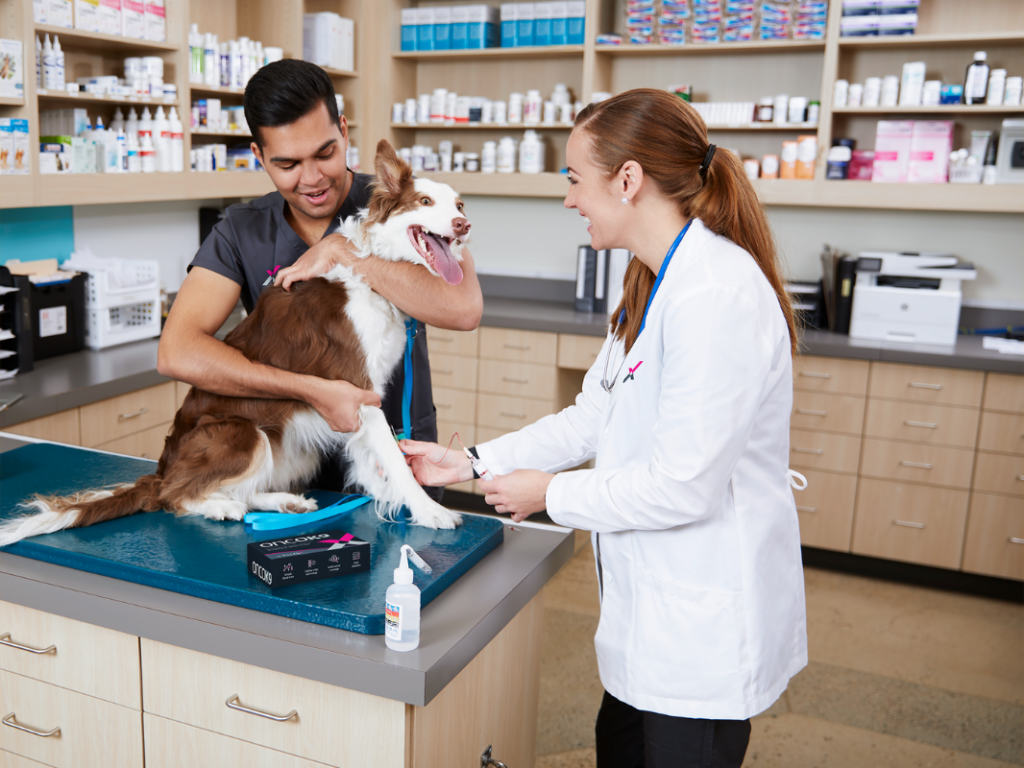
Presenter: Andi Flory, DVM, DACVIM (Oncology)
Total Credit Hours: 1 (1 Course)
Each of these courses has been approved for continuing education credit in jurisdictions that recognize RACE approval. Additionally, Vetcetera is approved as a sponsor of continuing education for veterinarians and veterinary technicians in the state of New York.
Oncology
Learn about the diagnosis and management of common neoplastic diseases. Review cutting edge diagnostics and therapeutics that can be utilized to improve patient outcomes.
Oncology Courses
Cancer detection in 2022: Can a blood test really find 30 different types of cancer in dogs?
The session sponsored by PetDx will review the clinical applications of PetDx's cell-free DNA-based technology and provide initial laboratory experience showing how this test is being used in veterinary practices across the country.
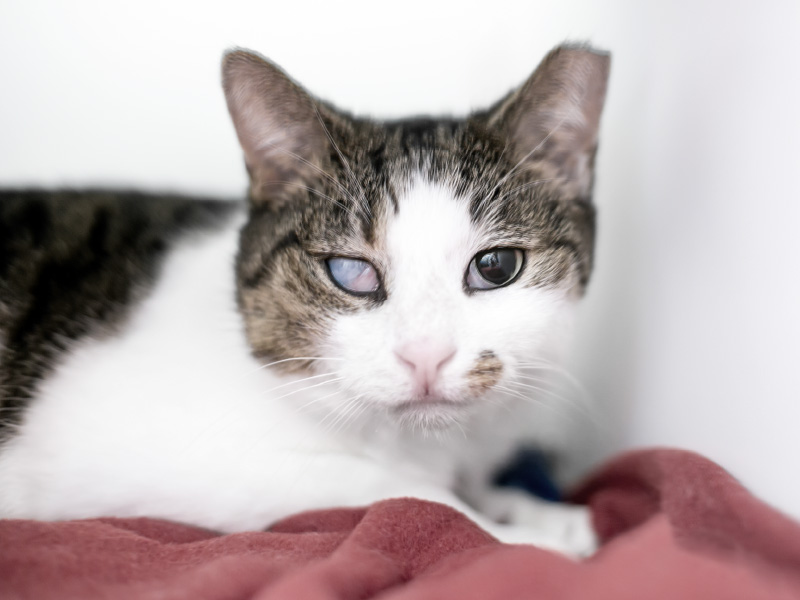
Presenters: Todd Marlo, DVM, MS, DACVO /Jessica Meekins, DVM, DACVO / Amy J. Rankin, DVM, DACVO
Total Credit Hours: 7 (7 Courses)
Each of these courses has been approved for continuing education credit in jurisdictions that recognize RACE approval. Additionally, Vetcetera is approved as a sponsor of continuing education for veterinarians and veterinary technicians in the state of New York.
Ophthalmology
Learn recommended diagnostic steps, common differential diagnoses, and treatment options for patients presenting to you in small animal general practice for a complaint of "red eye." Get tips on communicating with clients and when to refer patients to specialists for diagnostics and treatment.
Ophthalmology Courses
Canine Red Eye: External Causes
Explore differentials for common external causes for a dog to present with the complaint of a "red eye." Review diagnostic tests, treatment options, and prognosis for different disease conditions and practical client communication tips.
Canine Red Eye: Internal Causes
Review intraocular causes for a dog to present with the complaint of a "red eye," including glaucoma, anterior uveitis, and hyphema. Learn the etiology, diagnosis, and treatment of each condition and helpful client communication advice.
Feline Red Eye: At the Surface
Receive a detailed review of surface ocular causes of a "red eye" in cats, including feline herpesvirus-1, bacterial causes, and neoplasia. Review clinical signs, diagnostic workup, and treatment, with emphasis placed on what can be managed in a primary care setting vs. when to refer to an ophthalmology specialist.
Feline Red Eye: Delving Deeper
Provides a detailed review of intraocular causes of a "red eye" in cats, including uveitis, glaucoma, hyphema. Discuss clinical signs, diagnosis, and treatment of each condition with emphasis on what can be managed in a primary care setting vs. when to refer to an ophthalmology specialist.
Ophthalmic Emergencies in Dogs and Cats
Review common ophthalmic emergencies encountered in small animal practice, including corneal ulcers, foreign bodies, uveitis, glaucoma, retrobulbar abscesses, and proptosis.
Plus 2 other Ophthalmology courses!
- Glaucoma in Dogs and Cats
- Equine Ophthalmology
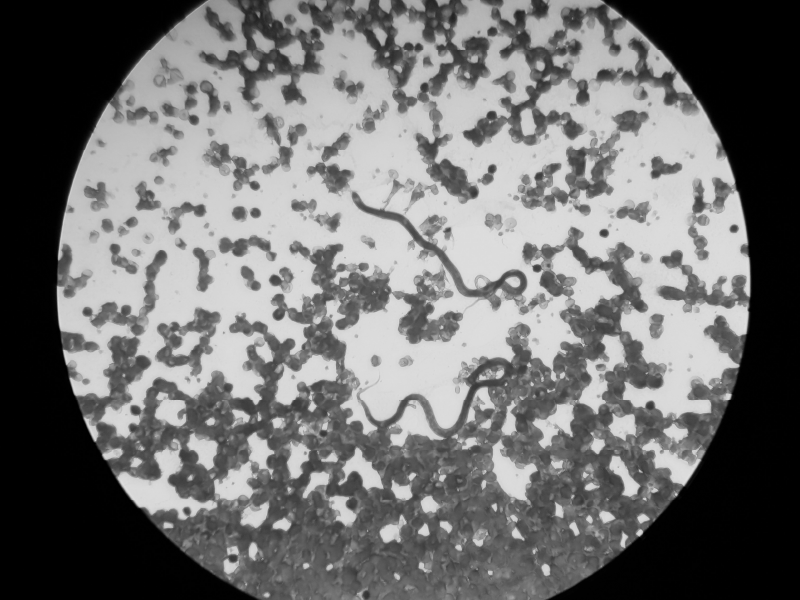
Presenters: Lindsay Starkey, DVM, PhD, DACVM-Parasit / Michelle Evason, BSc, DVM, DACVIM
Total Credit Hours: 2 (2 Courses)
Each of these courses has been approved for continuing education credit in jurisdictions that recognize RACE approval. Additionally, Vetcetera is approved as a sponsor of continuing education for veterinarians and veterinary technicians in the state of New York.
Parasitology
Learn how to diagnose and treat common parasitological diseases, such as heartworm disease and Lyme disease. Discover strategies for client compliance and parasite prevention.
Parasitology Courses
Heartworm: Current Trends and Updates on Diagnosis and Prevention
Dr. Lindsay Starkey reviews the diagnosis of heartworm disease, including ways to handle conflicting results. She then discusses treatments and prevention strategies, with some tips for increasing compliance.
Tick'd Off: Lyme Borreliosis
Dr. Michelle Evason discusses clinical signs, diagnosis, and treatment of Lyme disease in dogs and cats. She then reviews prevention strategies.

Presenters: Charlotte Lacroix, DVM, JD / Caitlyn Dewilde, DVM
Total Credit Hours: 4 (4 Courses)
CE Credit: RACE-approved, CVPM-approved
Each of these courses has been approved for continuing education credit in jurisdictions that recognize RACE approval. Additionally, Vetcetera is approved as a sponsor of continuing education for veterinarians and veterinary technicians in the state of New York. These courses have also been approved by the Certified Veterinary Practice Manager Board as applicable toward the continuing education requirement for the Certified Veterinary Practice Manager (CVPM) program offered by the Veterinary Hospital Managers Association (VHMA).
Practice Management
Enhance your practice's business operations with courses on team development, social media, marketing, management, and more.
Practice Management Courses
Motivating and Developing Your Team
Review the principles of performance management programs (PMPs) along with tips for using them to maximize your team's performance.
Social Media for the Tech-Challenged and Camera Shy DVMs
Successful social media use doesn't have to require a doctorate degree in geek-speak. Get an overview of social media platforms, tips for starting out, and strategies to boost your confidence behind the camera.
Aiming for Five Stars: Building Positive Reviews
Veterinary teams spend a lot of time worrying about negative online reviews, but are you doing all that you can to combat them? A few bad reviews can certainly be detrimental to a practice, but in a sea of dozens (or hundreds) of good reviews, they barely make a dent if at all. Focus on the positive and adopt a proactive approach to getting those five star reviews.
Cultivating the Client Behaviors You Want Through Marketing Efforts
Use your marketing to subtly nudge and facilitate your clients to take the actions that benefit your practice and your team. Go beyond getting them to book that appointment, shop online or request a refill. Get them to do it in the way that is most efficient for your team and/or provides the best client experience. Make your marketing a win-win for everyone!
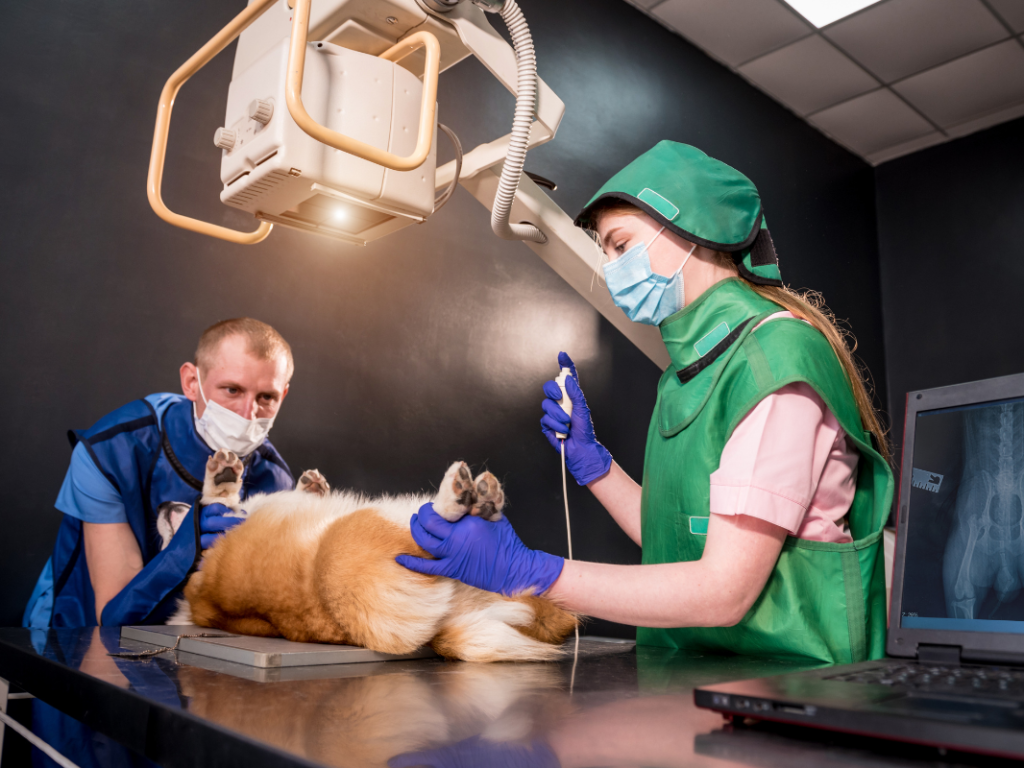
Presenters: Heidi Reuss-Lamky, LVT, VTS (Anesthesia & Analgesia), (Surgery) / Greg Lisciandro, DVM, DABVP, DACVECC
Total Credit Hours: 3 (3 Courses)
CE Credit: RACE-approved, CVPM-approved
Each of these courses has been approved for continuing education credit in jurisdictions that recognize RACE approval. Additionally, Vetcetera is approved as a sponsor of continuing education for veterinarians and veterinary technicians in the state of New York. These courses have also been approved by the Certified Veterinary Practice Manager Board as applicable toward the continuing education requirement for the Certified Veterinary Practice Manager (CVPM) program offered by the Veterinary Hospital Managers Association (VHMA).
Radiology
Learn about radiation safety for both patients and veterinary professionals. Review patient positioning for commonly utilized views.
Radiology Courses
'So Rad!' Positioning for Safety and Success in the Radiology Suite
Heidi Reuss-Lamky reviews principles of radiation safety. She then provides detailed instructions on patient positioning for the most commonly utilized views in small animal practice.
AFAST© Introduction and Its Target-organ Approach – Everyday Ultrasound
Dr. Greg Lisciandro introduces the clinical utility of AFAST®, its target-organ approach, and its applied fluid scoring system.
AFAST© and Its Abdominal Fluid Scoring System for the Bleeding Patient
Dr. Greg Lisciandro will introduce the clinical utility of AFAST®, its target-organ approach, and its applied fluid scoring system.
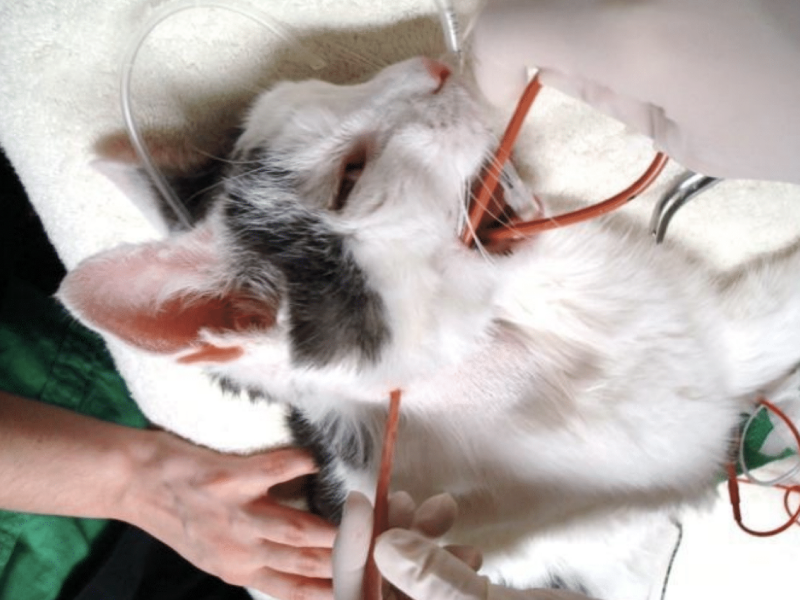
Presenters: John Berg, DVM, DACVS / Heidi Reuss-Lamky, LVT, VTS (Anesthesia & Analgesia), (Surgery)
Total Credit Hours: 10 (17 Courses)
Each of these courses has been approved for continuing education credit in jurisdictions that recognize RACE approval. Additionally, Vetcetera is approved as a sponsor of continuing education for veterinarians and veterinary technicians in the state of New York.
Surgery
Review step-by-step instructions on small animal soft tissue surgeries that are frequently encountered in general practice. Learn common causes of these surgical conditions, clinical signs, indications for surgery, recommended materials, surgical treatment options, postoperative care, and potential complications. View surgical video clips for most of the procedures listed.
Surgery Courses
Cesarean Section in Dogs and Cats
Reviews gestation and parturition as well as types and clinical signs of dystocia, medical treatment, and indication for cesarean section. Further, the lecture includes step-by-step surgical procedures, including anesthesia considerations, handling of neonates, and postoperative care of the dam.
Cystotomy in Dogs and Cats
Reviews the most common types of urinary calculi in dogs and cats and provides step-by-step directions for performing a cystotomy. The lecture also delves into suture material, suture patterns, and postoperative care.
Enterotomy in Dogs and Cats
Reviews causes of intestinal obstruction, medical management, and surgical procedures for enterotomies in dogs and cats.
Esophageal Feeding Tube Placement in Dogs and Cats
Provides instruction on esophageal feeding tube placement in dogs and cats, including a narrated step-by-step surgical video.
Plus 13 other Surgery courses!
- Gastric Dilatation and Volvulus
- Gastrotomy in Dogs and Cats
- Intestinal Resection and Anastomosis in Dogs and Cats
- Intra-abdominal Biopsy Techniques in Dogs and Cats
- Splenectomy in Dogs and Cats
- Tracheostomy Tube Placement in Dogs and Cats
- Soft Palate Resection and Correction of Stenotic Nares in Dogs
- Mass Excision: Soft Tissue Sarcomas and Mast Cell Tumors in Dogs and Cats
- Perineal Urethrostomy in Cats
- Ruptured Bladder Repair in Dogs and Cats
- Management of Septic Abdomen in Dogs and Cats
- Role of the Veterinary Surgical Scrub Technician
- Beating the 'Bugs'–Sterilization is Instrumental

Presenters: Karyn Bischoff, DVM, MS, DABVT
Total Credit Hours: 2 (2 Courses)
CE Credit: RACE-approved
Each of these courses has been approved for continuing education credit in jurisdictions that recognize RACE approval. Additionally, Vetcetera is approved as a sponsor of continuing education for veterinarians and veterinary technicians in the state of New York.
Toxicology
Learn about common toxicities affecting veterinary patients. Learn how to recognize, diagnose, and treat commonly encountered toxin exposures, including pet food contaminants.
Toxicology Courses
Pet Food: Recalls and Product Safety
Dr. Karyn Bischoff reviews the roles of veterinarians and the FDA in pet food safety. She discusses common types and sources of contamination, including natural contaminants, formulation errors, and adulteration.
Equine Feed Contamination and Toxicology
Dr. Karyn Bischoff reviews equine feed contamination, including natural contaminants, formulation errors, and adulterations. She also discusses the proper veterinary approach to cases of suspected feed contamination.

Presenters: Certified Compassion Fatigue Specialist Julie Squires
Total Credit Hours: 1 (1 Course)
CE Credit: RACE-approved
Each of these courses has been approved for continuing education credit in jurisdictions that recognize RACE approval. Additionally, Vetcetera is approved as a sponsor of continuing education for veterinarians and veterinary technicians in the state of New York.
Wellness
Learn useful techniques for supporting your mental health and wellness. Learn to recognize and combat common issues facing veterinarians and veterinary technicians, such as burnout and compassion fatigue.
Wellness Courses
Going Beyond Compassion Fatigue
Certified Compassion Fatigue Specialist and Life Coach Julie Squires provides a foundational look at compassion fatigue. She explores its impact on individuals and practices, and she discusses how to build resilience in veterinary medicine. She also provides information on self-care and adopting a positive mindset.
Vetcetera's on-demand video courses are RACE-approved for veterinarians for veterinary continuing education credit in states that recognize AAVSB RACE approval. Members should be aware that some boards limit the number of hours accepted in certain categories and may restrict delivery methods of continuing education.
Source: https://vet-etc.com/course-list/
0 Response to "Veterinary Medicine Continuing Education Morton s Steakhouse Boca Raton Florida"
Post a Comment